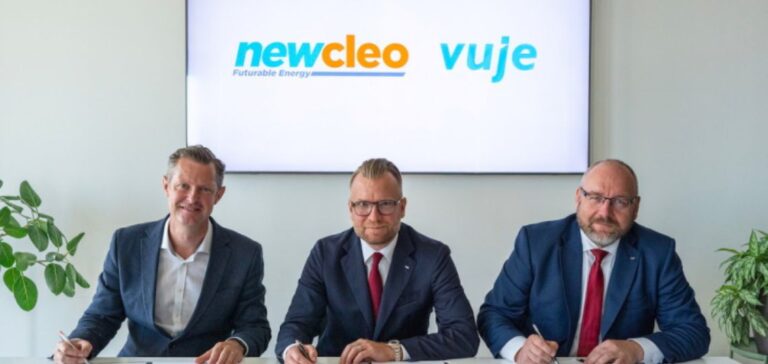Newcleo, a British company specializing in the development of innovative nuclear reactors, has signed a cooperation agreement with VUJE, a Slovak nuclear engineering company.
The aim of the agreement is to develop advanced modular reactor (AMR) technologies and fuel cycle solutions in the Slovak Republic.
Cooperation will focus on Newcleo’s lead-cooled fast reactor (LFR) and mixed oxide fuel (MOX), with prospects for utilizing Slovakia’s spent nuclear fuel stocks.
Slovakia’s nuclear potential put to good use
The partnership highlights the technical expertise of VUJE, a pillar of the Slovak nuclear sector, and the innovation brought by Newcleo in the field of advanced reactors.
The aim is not only to deploy LFR technology in Slovakia, but also to strengthen cooperation in research and development.
The project also includes the development of local skills in advanced nuclear technologies, which could have a significant impact on nuclear waste management and sustainable energy production in Europe.
Reactor optimization and deployment prospects
Newcleo has spent the last two decades perfecting its LFR AS-30 reactor concept.
This ultra-compact 200 MWe reactor offers advantages in terms of energy density and cost, thanks to its modular design and operation at atmospheric pressure.
The agreement with VUJE marks a milestone for the introduction of this technology in Eastern Europe, and Slovakia could become a key location for these innovations.
Roadmap and future developments
Newcleo’s first concrete achievement in this field will be the construction of a 30 MWe LFR prototype reactor in France by 2030, followed by a 200 MWe commercial unit in the UK by 2033.
In parallel, Newcleo will invest in a MOX production plant to fuel its reactors, with feasibility studies already underway by French company Orano.
The agreement with VUJE could serve as a model for other European countries seeking to modernize their nuclear infrastructures and reduce their carbon footprint.






















